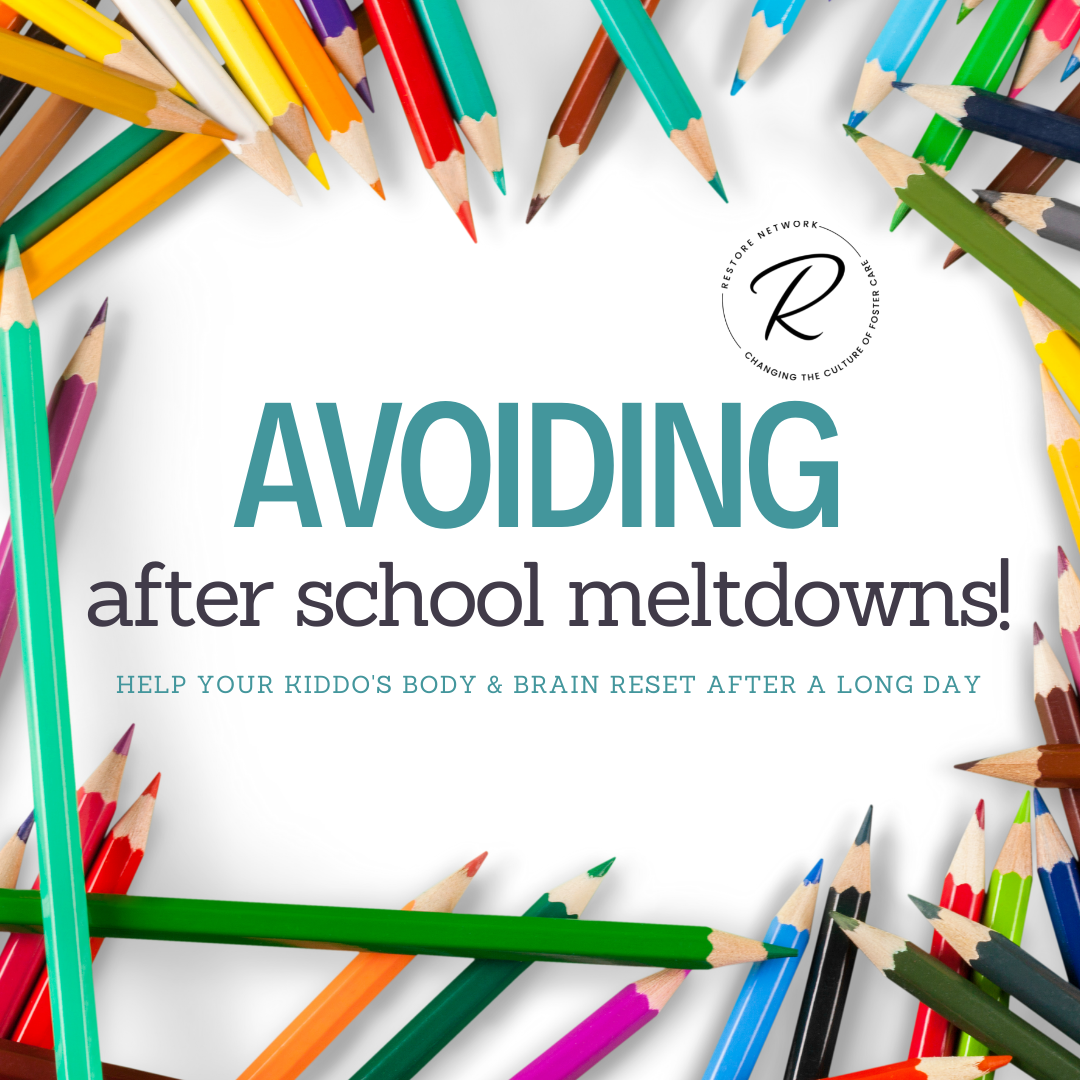by Ashley Bennett, Director of Trauma-Informed Care
Let’s face it, the after school meltdown can be REAL. Your kiddos have done their best to listen to other adults all day, stay seated when they want to move around, take turns, engage social situations, and learn all kinds of new academic challenges. The pressure for them to bring their best to school every day can be a lot for any kid but can be especially overwhelming to a child with a sensitive or reactive nervous system due to chronic childhood stress. When that bell rings and they’re on the way home, their brains and bodies are probably at capacity. One little reminder from you about an evening chore, one question about their home work, one wrong look from a sibling, and the tension of the day can come pouring out. Cue the meltdown.
It doesn’t feel great to be caught up in the middle of your child’s after school meltdown, but when you stop to think about their day, it makes sense. It’s also a great sign that they are comfortable enough to show you their true feelings and let it all out. It shows you they consider you safe and it’s a great opportunity for you to show them that you see them and that you are there to support them.
To lessen the after school meltdowns, consider these few tips:
1. Avoid asking him too many questions right away. You’re excited to see your kid and you want to know how his day was but he needs to reset before he can engage in any meaningful or respectful way. Save the multiple questions for the dinner table or bedtime routine!
2. Feed & water him. It’s likely been too long since he last ate something and low blood sugar and dehydration can influence behaviors. Before you ask much of him, feed and water him first. If you pick him up from school, bring a snack along for the ride home and by the time you get home you might have a different kid.
3. Get his body moving. After sitting for most of his day trying hard to pay attention, he needs to move his body. After he eats, give him at least 30 minutes to move and play before engaging him in conversations about home work, chores, or other evening activities. Other ways your child might prefer to regulate might involve listening to music, having some alone time, taking a bath or shower, or watching a show.
4. Don’t overschedule the hour right after school. We all live busy lives and making time for appointments, athetics and house hold responsibilities can feel overwhelming! A few days a week might work for your family, but if every evening after school is filled with nonstop on the go expectations for you and your kiddo, you’re likely setting yourselves up for some meltdowns. Try to create space for rest amidst the busyness of family life, especially right after school.
5. Delay home work for later in the evening. I know you might want to “get it off your plate” and have your child complete their home work BEFORE going out to play but try reversing that order this year! An hour of rest, food, and play actually puts your child in his regulated and thinking brain which means he’s actually able to focus and attend to his home work much better which means less frustrations and control battles over it. Same thing goes for chores or other household responsibilities. Give his brain a break and then engage him in these responsibilities.
6. Don’t forget to connect. After a long day apart, the transition back together as a family can present a challenge. Everyone has their own preferences, expectations, and needs and this can all get lost in the shuffle after school. For some of your kids connection might look like physical touch, a conversation, or setting a timer and giving them 10 minutes of uninterrupted play time with you. Whatever their need for connection is, if you meet it, you’re setting yourself up for a more successful rest of the evening together!
Free tip-this also works with your partner or spouse! 🙂
